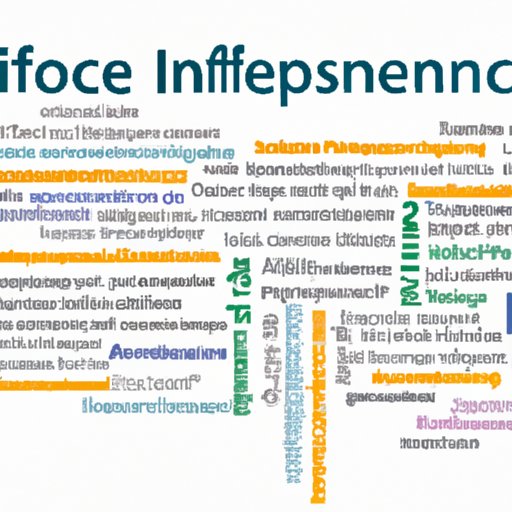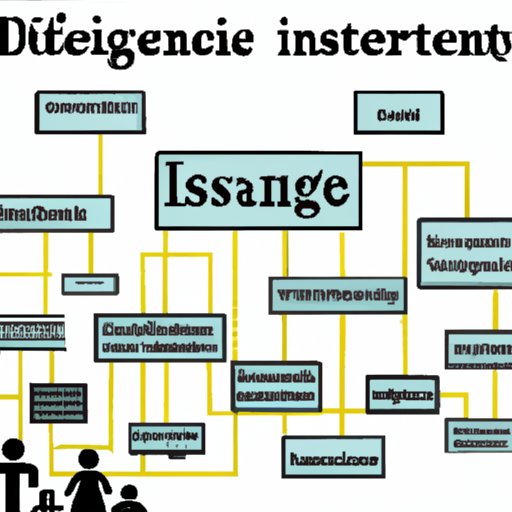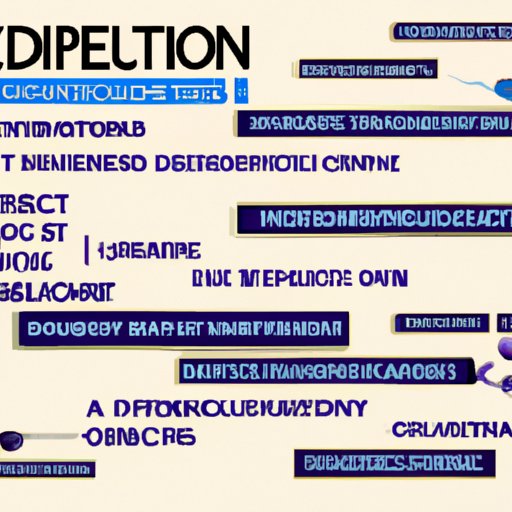Introduction
Information science is an interdisciplinary field that focuses on how people acquire, store, organize, analyze, and use information. It merges aspects of computer science, library science, and cognitive science to create methods for managing and understanding data. Information science is used in a variety of industries and fields, such as education, business, healthcare, and government.

Definition and Scope of Information Science
Information science can be defined as “the study of how people collect, organize, store, access, analyze, and use information.” It involves understanding the structure and organization of data, as well as the processes used to access and interpret it. Information science is used in many different industries, such as healthcare, finance, education, and government. It is used to develop systems and tools that enable users to effectively manage and utilize large amounts of data.
The scope of information science is broad, encompassing a variety of disciplines, such as computer science, library science, cognitive science, and psychology. Information science also includes topics such as data mining, machine learning, natural language processing, and artificial intelligence. All of these areas are essential for understanding how data is acquired, stored, accessed, and analyzed.
Benefits of Information Science for Businesses
Information science can provide a number of benefits for businesses. For example, it can help organizations better understand their customers and target specific audiences with tailored marketing strategies. Additionally, information science can help businesses analyze customer data to identify trends and make more informed decisions. As Forbes contributor Michael L.Kaufman wrote, “Businesses can gain insights from data analysis to improve operations and better serve customers.”
In addition to improving customer relations, information science can help businesses increase efficiency by automating certain processes. For instance, it can be used to create algorithms that automate tasks such as data entry and customer service inquiries. Automation can save businesses time and money while allowing them to focus on more important tasks.
Data Analysis
Data analysis is one of the most important aspects of information science. Data analysis involves collecting, organizing, and interpreting data to identify patterns and trends. This process can provide valuable insights into customer behavior, market trends, and other important information. By understanding data, businesses can make more informed decisions and optimize their operations.
Data analysis also enables businesses to gain a better understanding of their customers. For example, they can use data analysis to segment their customer base and create targeted campaigns that are tailored to each segment. This can help businesses increase conversion rates and better serve their customers.
There has been a growing demand for data analysts due to the increasing importance of data in today’s world. According to a McKinsey Global Institute report, “Demand for deep analytical talent will exceed supply by 50 to 60 percent by 2018.” This demonstrates the importance of data analysis and the need for professionals who are skilled in this area.

Impact of Information Science on Society
In addition to benefiting businesses, information science can have a positive impact on society. It can be used to develop new technologies and tools that improve people’s lives. For example, information science can be used to create algorithms that can detect diseases earlier and more accurately than traditional methods. This can help reduce the mortality rate and improve public health.
Information science can also be used to develop technologies that can reduce the environmental impact of human activities. For instance, data analysis can be used to identify patterns in energy usage and develop strategies to reduce emissions and conserve resources. This can help protect the environment and ensure a sustainable future.
Artificial Intelligence
Information science plays an important role in the development of artificial intelligence (AI). AI is a branch of computer science that focuses on creating machines and systems that can imitate human behavior. AI applications can be used in a variety of industries, such as healthcare, finance, and transportation. AI can automate tedious tasks and allow humans to focus on more complex tasks.
Information science is used to develop AI systems that can learn and adapt to new situations. For example, AI algorithms can be used to analyze large amounts of data and identify patterns that can be used to make predictions about future events. This can help businesses make better decisions and optimize their operations.
Additionally, information science can be used to create AI systems that can interact with humans. For example, chatbots can be used to answer customer inquiries or provide product recommendations. This can help businesses provide better customer service and increase customer satisfaction.

Skills Needed to Pursue a Career in Information Science
Individuals interested in pursuing a career in information science should understand the necessary skills. Information science requires knowledge in a variety of disciplines, such as computer science, statistics, mathematics, and social sciences. Additionally, individuals should be familiar with programming languages and software development tools.
In addition to technical skills, information scientists must have strong communication and problem-solving skills. They must be able to work collaboratively with others and think critically about complex problems. Additionally, they must be able to explain their findings in a clear and concise manner.
There are a variety of occupations that involve information science, such as data analyst, software engineer, and UX designer. These occupations require different levels of knowledge and experience, so individuals should research the job requirements before applying.
Conclusion
Information science is a rapidly growing field that has a range of benefits for businesses and society. It can be used to improve data analysis, develop artificial intelligence applications, and automate tedious tasks. Additionally, individuals interested in pursuing a career in information science should understand the necessary skills, such as computer science, statistics, and software development.
Overall, information science has the potential to revolutionize the way we interact with data and our environment. As businesses and society continue to embrace data-driven decision-making, information science will become increasingly important. For those interested in exploring this field, there are a variety of resources available to learn more.
(Note: Is this article not meeting your expectations? Do you have knowledge or insights to share? Unlock new opportunities and expand your reach by joining our authors team. Click Registration to join us and share your expertise with our readers.)
